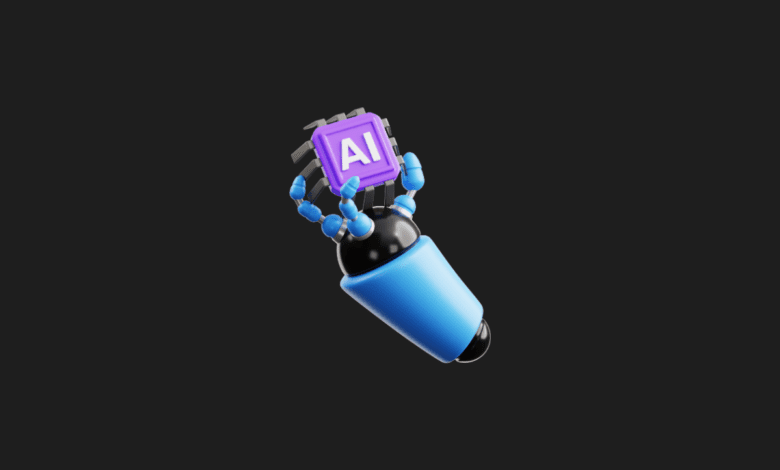Discover the Essentials of Artificial intelligence (AI)

Artificial intelligence (AI) refers to systems engineered to replicate human intelligence, tasked with performing specific duties and enhancing their capabilities through the analysis of gathered data. What distinguishes artificial intelligence from contemporary technological systems is its capacity to imitate human thought processes.
These systems analyze current situations, evaluate the relevant contexts based on set parameters, and formulate responses accordingly. During this process, artificial intelligence integrates data related to the scenario, employing rapid, iterative, and smart algorithms.
Artificial Intelligence History

The term “artificial intelligence” (AI) was first introduced in 1956 and has become increasingly prominent due to advancements in science and technology, such as the expansion of data volumes, and improvements in algorithms and computational power.
Early AI research concentrated on problem-solving and symbolic approaches. The emergence of machine learning marked a significant turning point in AI development, which has continued to evolve with the advent of deep learning. This evolution has enabled capabilities such as speech recognition, image recognition, data analysis, and predictive analytics.
How Does Artificial Intelligence Function?

Artificial intelligence (AI) functions by combining large datasets with intelligent algorithms and iterative processing. This approach allows AI to autonomously learn from the patterns and features identified in the data. Various methodologies and technologies underpin AI’s multifaceted capabilities, including:
Machine Learning
This technology enables the automation of analytical model building, allowing AI to uncover insights within data through neural networks, statistical methods, and physics, eliminating the need for explicit programming.
Artificial Neural Networks
These involve processing information in response to external inputs using networks of artificial units that transmit information among themselves. This setup allows AI to discern patterns and relationships between units, facilitating the interpretation of complex data over multiple iterations.
Deep Learning
A subset of machine learning, deep learning employs sophisticated computational and training techniques to develop complex models from extensive datasets. It utilizes large neural networks with several layers of processing units to achieve this.
Cognitive Computing
This technology enables AI to mimic human interaction with machines, allowing it to process and interpret images, speech, and data to generate coherent responses.
Advanced Algorithms
These are crucial for allowing AI to process large datasets more quickly and at multiple levels, enabling the system to understand complex patterns, identify, and optimize unique scenarios.
Graphics Processing Units (GPUs)
GPUs provide the necessary computational power for the iterative processes essential to AI, facilitating the training of neural networks.
Why is Artificial Intelligence Significant?

Artificial intelligence (AI) facilitates the optimal use of data, becoming increasingly crucial for businesses today. It analyzes broader and more profound data through multi-layered neural networks. Furthermore, the deep neural networks guarantee the reliability and validity of the analytical results produced by AI.
Given that its algorithms are capable of self-learning, AI can effortlessly evaluate unique datasets. Natural Language Processing (NLP) is a subset of AI that allows computers to comprehend, interpret, analyze, and generate natural human language.
How Does Artificial Intelligence Benefit Businesses?

Although the functions and application areas of artificial intelligence (AI) differ across industries, it provides several benefits to businesses. AI aids in the decision-making process concerning business goals and strategies by offering insights and data, thereby granting them a competitive advantage. Other advantages of AI for businesses include:
- Automating business operations and enabling automated decision-making.
- Increasing efficiency and reducing operational costs.
- Elevating sales rates.
- Enhancing the quality of products or services.
- Optimizing business processes, including supply chain and logistics management.
- Boosting customer satisfaction, loyalty, and overall experience.
- Allowing for more effective and improved allocation of the workforce.
- Supporting personalized marketing initiatives.
What Are the Potential Risks of Artificial Intelligence?

While artificial intelligence (AI) can be programmed or trained by humans, it is also vulnerable to manipulation or misprogramming by malicious actors, potentially leading to AI systems making inaccurate or incorrect decisions.
Human Unemployment
The advancement of AI technologies might replace human workers, potentially resulting in unemployment across various sectors.
Ethical Issues
AI technologies’ ability to make critical decisions affecting human life and health can pose ethical dilemmas. For example, the use of autonomous weapons in warfare or AI-supported decisions in healthcare could raise significant ethical concerns.
Privacy Violations
AI technologies’ capability to collect, store, and analyze personal data may lead to privacy infringements.
Artificial Intelligence Race
The development of AI technologies has ignited a competition among many countries, which could escalate cyber attacks, increase espionage activities, and intensify a global arms race.
Artificial intelligence remains a novel and intricate technology. To maximize the benefits from AI systems, companies require expertise in developing and managing solutions. For effective AI management, businesses must establish processes and management strategies equipped with the appropriate tools.











